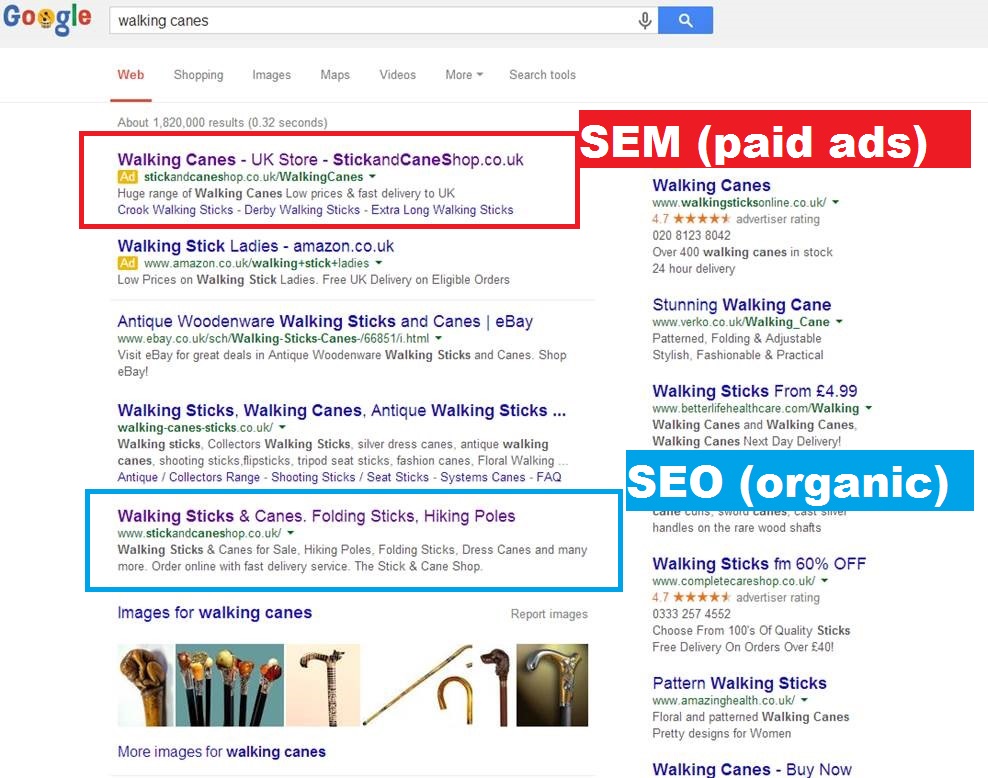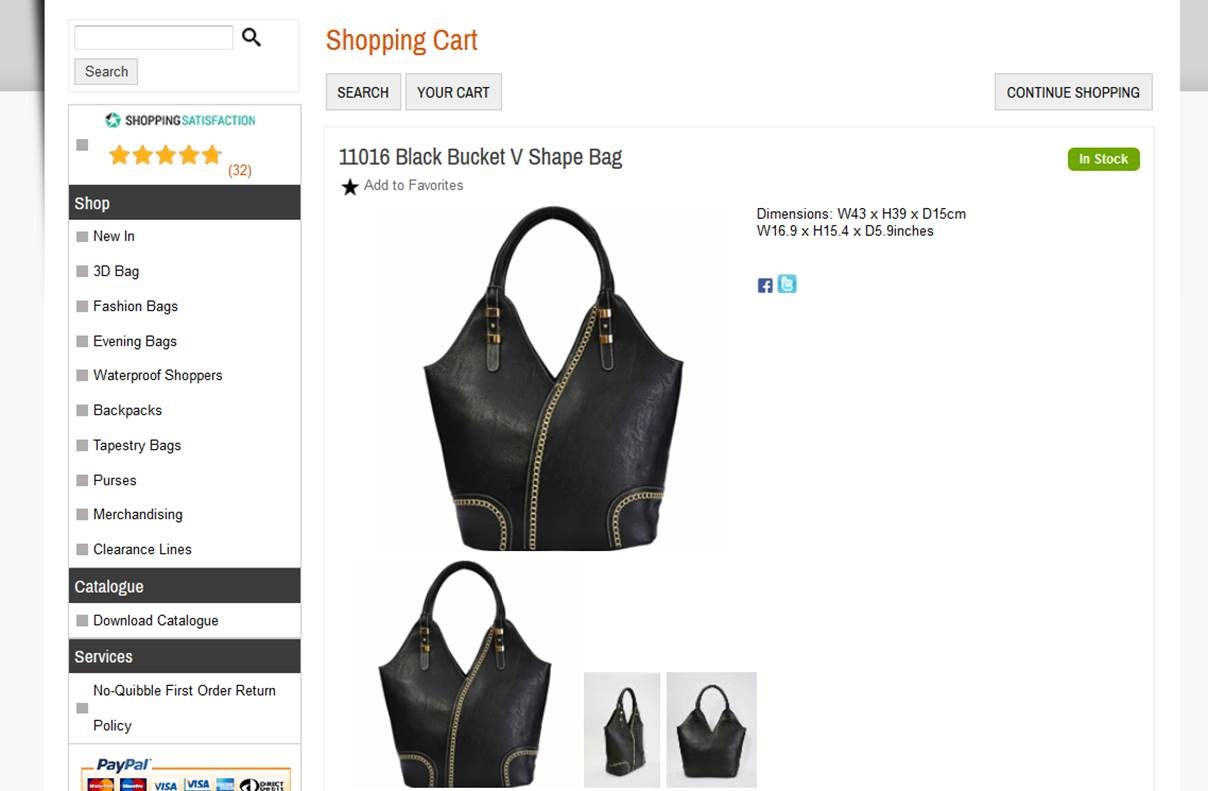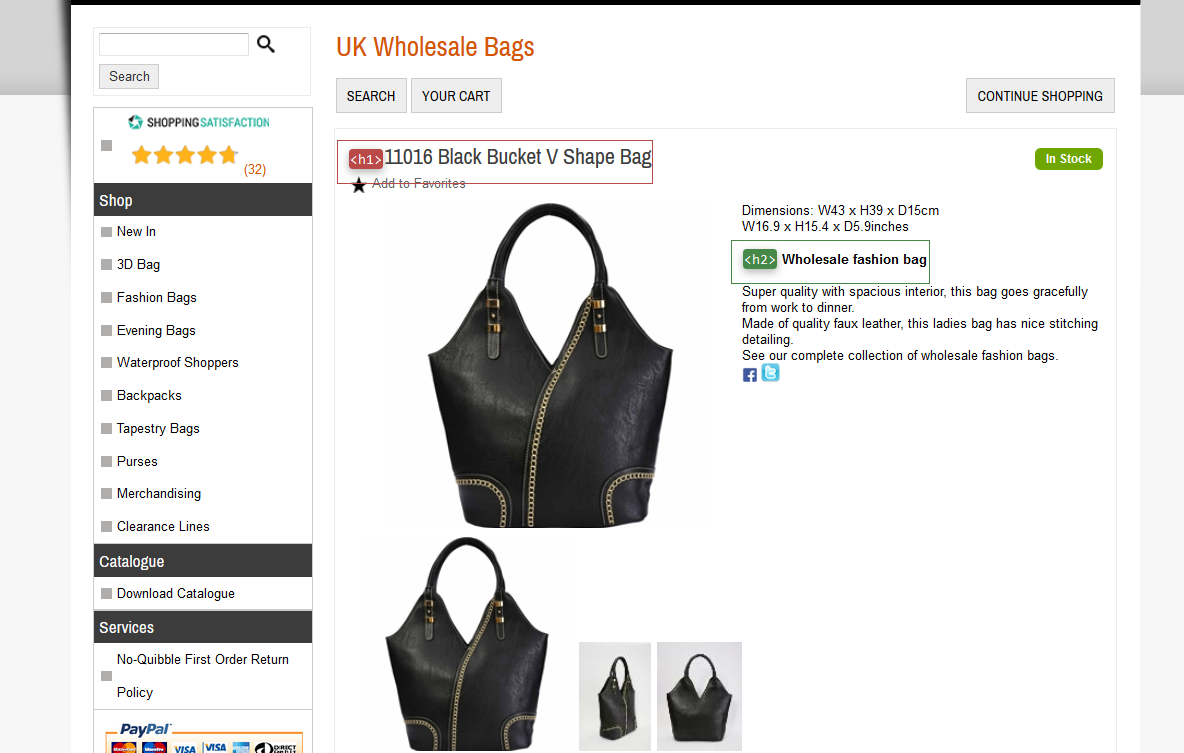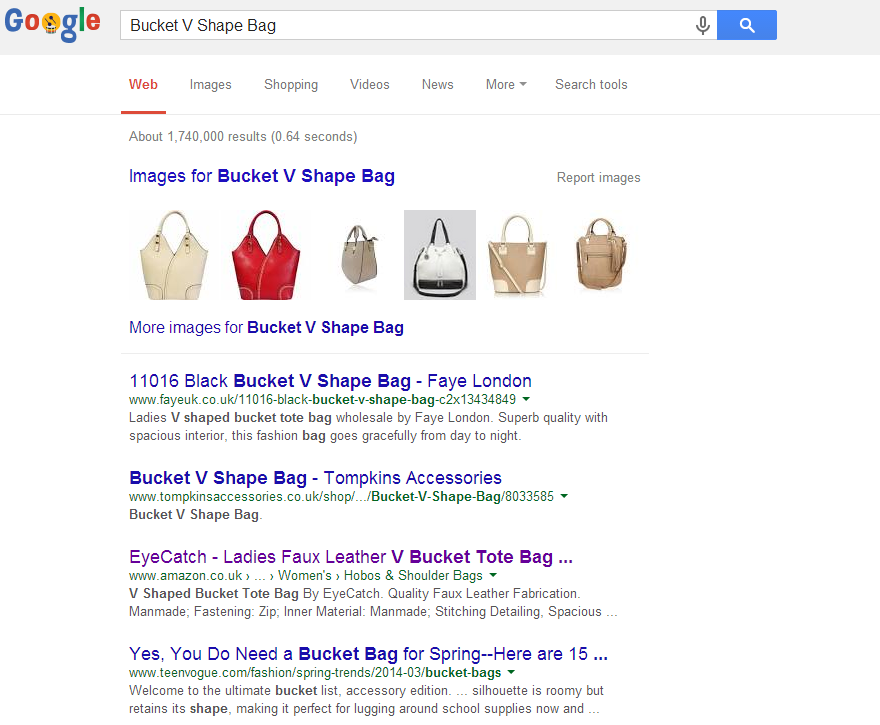| |
|
Expert Advice
|
|
For Success in e-Commerce
|
|
|
Our team of e-Commerce experts outline an effective strategy for increasing and optimising your sales!
|
|
|
Like the founders of the site Will and Glory, stack all of the odds in your favour with a good SEO strategy: “By carefully selecting keywords, following the free Oxatis help guidelines and integrating these words throughout our site, we now appear in the top Google results for many relevant keywords!”
The Holy Grail e-tailers are chasing today is how to get more traffic for low acquisition costs, in other words, SEO. Today SEO refers quite simply to appearing as high as you can in Google search results (the search engine used by close to 19 out of 20 internet users…)
Our e-Commerce experts go over the top practices all e-tailers should know and apply.
|
|
|
THINGS TO KEEP IN MIND:
|
1. 50% of traffic from e-Commerce websites comes from search engines
2. 90% of searches are made with Google
3. SEO= search engine optimisation. This means key words, domain name, number of backlinks, descriptions, site content, blogs, social networks etc.
4. SEO is something that has to be worked on over time. It’s first and foremost a question of quality and original content.
5. Develop a strategy before getting started on your SEO: concentrate on carefully choosing your key words.
6. Name your categories, rewrite your URLs and include your key words in your product descriptions
7. Make sure your site is designed for your visitors, not just for Google! Don’t over-optimise as you’ll end up being penalised.
8. Keep an eye on your metrics so you can determine the pertinence and efficacy of all your actions.
|
|
|
8 Steps to Triple Your Organic Traffic!
|
|
|
01
|
Understand SEO and use it to your advantage!
|
In order to understand SEO, you have to understand Google. The search engine’s goal since its creation in the 90s has always been to help internet users find the information they’re looking for. Unlike a directory where information is organised into pre-defined categories, search engines find information based on the key words internet users type.
When you type what you are looking for, Google presents you with a page of results with links and descriptions of pages. On this page of results some are “organic” while others are ads. Here lies the difference between SEO and SEM.
 |
The order the results appear in is not a human choice but the result of an algorithm. It takes into account hundreds of different criteria. Among these are key words, seniority of the domain, the number of backlinks, descriptions, the number of “interesting” pages on the website, when the information was last updated and social network activity.
SEO is a key factor for e-tailers: with “organic” traffic you need to depend on paid campaigns a bit less and even on days you don’t invest in AdWords, Display or email marketing, you still have visitors to your site. It’s a real tool for potential sales!
To better understand the philosophy behind SEO, keep in mind the following:
> Google tries to help their users by protecting them from pages they aren’t interested in (i.e. over optimised pages)
> SEO is a long-term project
> SEO is more and more a question of quality and original textual content
> Make sure your site is designed for your visitors first and foremost, and not for Google!
SEO is a game whose rules are constantly changing: positions are never definitive, and it’s completely possible to rise in results, even in a competitive field…Which is what we’re going to help you do in this expert advice!
|
|
|
02
|
Set up your SEO strategy
|
Before getting started, take some time to think about your specific goals, keeping in mind that SEO is first and foremost about concrete results and common sense.
This is what Christine and Linda Naysmith did for their site Brolliesgalore: “Organic SEO techniques combined with purchased advertising have led to more than satisfactory results: we appear on the first page of search results for main keywords and are strategically placed compared to our competitors.”
The first question to ask yourself is what your key words should be—this is something that requires your utmost attention. Find out which key words your competitors seem to be using (For example with Google AdWords Keyword Planner, which can suggest key words linked to those you’re thinking of). If your site is already live, you can use Google Webmaster Tools to try and determine which key words are already being used by your audience (though this data is harder and harder to obtain as Google hides it in a large group of “not provided keywords.”
You can also use the opportunity to track some of the main keywords in your field. This will allow you to over time determine whether your efforts pay off or if you have to work on one or two words in particular.
At this stage a “good” keyword must have at least one of these three qualities, and if possible several:
> Search Volume: it’s searched often enough (there’s no point for example in optimising your site for the expression “blue brush for Shetland ponies” if only one person a year actually types the expression
> Weak Competition: it’s not used by too many of your competitors (good luck appearing on the first page for “Harry Potter books.”)
> Conversion: It leads to customers, not just curious visitors (some key words are typically used to gather information, not to buy).
|
|
|
03
|
Boost your traffic for free by following these basic tips
|
While SEO might seem bit technical (it’s isn’t, we promise!) there are lots of things you can do very simply that can have a significant impact. In a few weeks you can double or triple your traffic coming from search engines. That’s no magic to it, it’s enough just to make sure you’ve gone through the basic steps for your site: a different title for each page, strategically place your key words for each of your products, write good (and long) descriptions, detailed product pages, etc.
Your category titles are very important: these are links that appear on all of your site’s pages and have a strong impact. Tip: integrate your key words into subcategories as well for maximum SEO impact.
The key words you use to name categories and subcategories are essential. If we take the example below, the optimisation of the category name “wedding umbrellas” allowed the site in question to move up to number two in search engines.
Result: Second position in Google for the targeted expression!
URLs also play an important role: they should contain your most important key words so search engines can accord your pages all of the relevance they deserve. The impact is not insignificant, as Damien Laygue, President of RHondemand.com testifies: “We were able to improve our site’s SEO thanks to the personalisation of rewritten URLs and make them relevant to our pages’ content. Different optimisations enabled us to triple our organic traffic in 6 months!”
|
|
|
04
|
Learn how to use these tools to your advantage
|
By default, the Oxatis solution includes tools to help you work on your site’s SEO and take advantage, as early as the next day, of additional, quality traffic.
> Tags
> Image SEO
> On site search
> Meta tags
|
|
Like The Stick & Cane Shop, get to the top of Google!
|
Linda Naysmith from the Stick & Cane Shop testifies:
“We worked closely with the experts at Oxatis to carefully select the keywords we wanted to optimise, and followed their advice on the optimisation of our site. Thanks to these efforts combined with some paid advertising, we were able to improve our status to second place in Google for a highly competitive keyword.”
|
Call our
e-Commerce experts today at 0845 129 4800 to put into practice the top SEO techniques
|
|
|
|
|
|
05
|
Avoid these errors which will ruin your SEO efforts
|
Because of Google's efforts to punish bad practices, there are couple of things you should absolutely avoid doing to avoid shooting yourself in the foot. But if you manage to avoid these traps then your SEO will be a success.
> Fight against over-optimisation: there’s a lot of bad advice out there that will tell you to create millions of pages, overuse key words, buy backlinks…Google always ends up finding these borderline practices and punishing them severely. Don’t play with fire!
>Don’t underestimate product page descriptions: this is probably the most important content on your site, along with titles, categories and your catalogue key words. Give it the time it deserves!
But don’t just take our word for it. Here’s the impact optimising a product page can have:
|
Product page before optimisation
|
Product page after optimisation
|
 |  |
|
|
|
Result: First position in Google for the targeted expression “Bucket V Shape Bag”!
|
 |
> Avoid duplicating content: whether it’s copying similar content from one part of your site to another or copying original content from elsewhere, this is severely punished by Google. At best, the search engine won’t index the pages in question. Worst case scenario they’ll delete all of the search results related to your domain. NEVER use manufacturers’ product pages, as it’s almost certain the content is already used somewhere else…
> Feature customer reviews. This adds to your content and often adds to your key word count (words typed by your customers. They help improve your SEO as well as your conversion as 85% of customers admit they rely on them!
> Use URLs that are as clear as possible and include key words. The good news: Oxatis makes this easy!
|
|
|
06
|
Follow your metrics
|
If you’ve been following us for a while you know that we love stats, especially the ones that allow you to boost your turnover when you keep a close eye on them!
SEO is no exception to the rule: following a couple of figures regularly will almost systematically allow you to improve in the long run. The important information to keep an eye on is:
> Which of your visits/visitors come from search engine links?
> Do these visitors stay a long time? Do they buy on several pages?
> Do they confirm purchases?
> Do they generate income?
> Are you able to build customer loyalty as early as the first order?
Comparing your online shop’s sources of traffic will help you better understand the efficiency of your actions and their impact on your profit margin and overall acquisition costs.
And, of course, all of the metrics we discussed in our last expert advice remain relevant!
|
|
|
07
|
Understand the impact of social networks on SEO
|
We discussed this issue for Facebook’s 10th birthday, but the subject is so important that one way or another it ends up making its way back into our Expert Advice time and time again.
In their algorithm Google takes into account the number of social network shares of a particular page. The reason for this is simple: if a page is shared by human beings, than it must be worthy of interest. Which means it will be more useful to searchers than a page that hasn’t been shared.
This is particularly true for Google+, Google’s own social network.
A part from the sharing war, social networks have another major influence on SEO: social results or personalised search results depending on social networks. The idea is simple: your results, for the same key word, won’t be the same as if someone else typed the same key word because searches, clicks, browsing history and who you know will be taken into account when your search results appear. If your little cousin is a fan of a particular sticker website and you search for one chances are his favourite site will be on your first page of search results…
|
|
|
08
|
Think first and foremost of online shoppers!
|
There are thousands elements to optimise to improve your search results ranking, and sometimes it’s tempting to keep only the technical side of SEO in mind. Don’t forget that behind all of this, and the ones actually making purchases, are human beings! You site needs to be readable and pleasant FOR THEM as a first priority…even though search engines are of course important!
Don’t hesitate to contact our experts for a free call back and advice: we are here for you to go over your key words, strategies, minor modifications and adapt your online shop!
It’s your turn, time to perfect your text and boost your SEO!
|
|
|